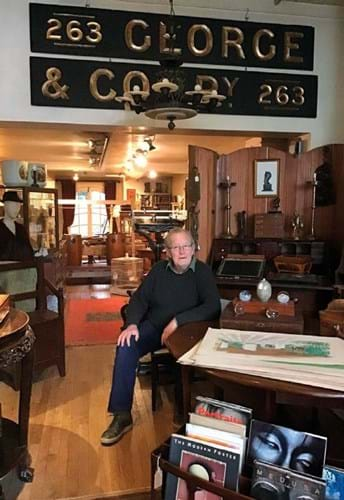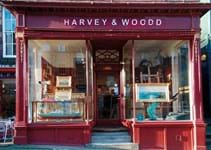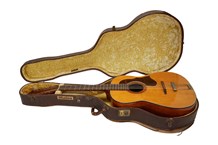He says that the decision was prompted by fashion. “People come in here and say ‘I haven’t been in a shop like this for years’. I haven’t changed really. I started out dealing in brown furniture but you can’t sell it. Now people have moved on to selling things that my parents had which I had hated – then my children started buying it.”
He started out doing furniture restoration in the basement of the shop under its previous owner, another antiques dealer. Eventually he took over the ground-floor premises and moved into the home above – his restoration studio is still in the basement.
Though this west London area used to be a hub for the antiques trade with five stores clustered together, the storefront has been bought by a coffee shop.
Clay leaves with happy memories, including finding an 18th century coromandel screen at auction and selling it on Bond Street for a healthy profit – something like £10,000 over a hammer price of £1500 in the late 1970s.
And, among those who came to his door, he recalls, was actor Larry Hagman, the infamous JR Ewing in Dallas, who appeared at his door in a white Stetson and pointed boots with a silver stick.
Clay now joins many of London’s bricks and mortar dealers in pointing out the decline of the passing trade.
With a deadline to move out in April, he is focusing on clearing the shop and studio, offering discounts on remaining stock.
Despite never having owned a mobile phone or being very active on social media (though he does have Instagram and Facebook accounts), he predicts he will need to sell some of the stock online. The rest he will bring to his new home, keep doing some restoration work for himself and maybe even sell a little on the side.
After all, he says: “Antique dealers don’t retire, do they?”















